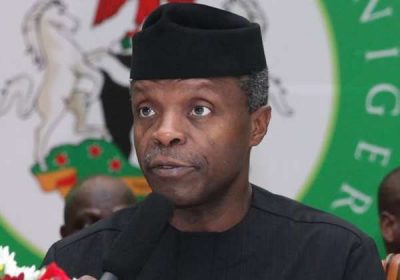The Vice-President, Prof Yemi Osinbajo, has said breaking up of Nigeria will not solve the country’s multiple problems adding that there is no truth in the thinking that the different regions of the country would prosper individually if they go their separate ways.
He said Nigeria needed to learn from the example of Sudan, which split into northern and southern Sudan in the belief that that was the solution to the country’s internal strife.
The VP, citing the case of Somalia, argued that the fact that people speak the same language and practise the same religion was no guarantee that they would live in harmony.
Osinbajo spoke in Lagos on Tuesday at the 70th anniversary lecture of the Lagos Country Club on the theme, ‘Promoting national cohesion as a means of promoting progress and prosperity.’
While pointing out that diversity could either be a trigger for conflict or a fountain of prosperity and progress, Osinbajo urged Nigerians to embrace the latter like the United States of America, which exploited diversity to its advantage.
He said, “The truth is that any group that suggests that its destiny is outside Nigeria and so must separate to achieve its ambitions will find out soon enough that even within that group there are many little splinters, factions waiting to cut the pie into even smaller pieces, hoping that by doing so, they will eat a large piece.
“The mere fact that we all speak the same language or belong to the same tribe does not mean that there will not be strife; and in the same way, the mere fact that we all speak different languages or belong to different tribes and religions does not mean we will strive.”
Osibanjo regretted that as a result of weak law enforcement and justice institutions, divisive narratives had gained ground in the country.
To reverse this trend, he said the institutions must be strengthened to assure Nigerians of security anywhere they lived.
He added, “The challenge is dynamic and our approach must also be dynamic. That is why I believe that state police in a large and diverse federation is imperative.
However, we know that the creation of state police requires a constitutional amendment. In the interim, the Federal Government has approved community policing, as an option. A component of that is that the new approach to police recruitment is that policemen will be recruited in each local government and after training, they will be required to remain in their local government.”













